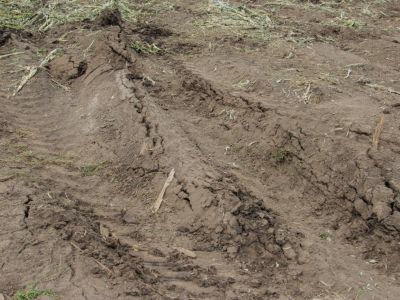Why Soil Compaction is Bad
What would be easier to run through, a pile of bricks or a pile of pillows? For a plant, compacted soil is like a pile of bricks. Roots must work harder to grow into soil, which means that there will be less roots, which means that the plant takes up fewer nutrients and water. All this translates to poor plant growth. Beyond this, when soil is too compact, it can make it difficult for water to percolate through the ground. When water cannot sift through the ground properly, plant roots can literally suffocate. Plants roots need air the same as people and animals do.
How Soil Compaction Happens
At a basic level, soil compaction happens when something collapses the air pockets in between the components in the soil. A common reason for soil compaction is pressure from foot traffic or heavy machinery, like cars. It’s common to see soil compaction in ground that is walked on frequently, near sidewalks or near roadsides. Compacted soil also happens when ground is worked in less than ideal conditions. If the soil is too wet when you till, the structure of the soil can collapse. If the soil doesn’t have enough organic material to fluff it up, the parts of the soil can settle together. Even working the soil when it is too dry can disrupt the natural structure of the soil and collapse it. Working the soil too often can also cause soil compaction. Some soils are simply prone to becoming compacted. A soil that is clay heavy will compact more easily than other soils.
Improving Compacted Soil
The very best way to improve soil compaction is to make sure it doesn’t happen in the first place. Avoid tilling your soil when it is too wet or too dry. Also, don’t till your soil more than once a year and, if you can, avoid tilling your soil at all. Keep foot and vehicle traffic to a minimum. Loosening compacted soil can be done a number of ways. For larger areas, like lawns, you can use an aerator. These machines will either remove plugs of soil from the ground or will puncture the ground and give the soil room to decompress. For smaller areas, you can work in organic materials like compost, peat moss and other organic materials. Gypsum is another amendment that can be used for loosening compacted soil. Earthworms are another way to improve soil compaction. Earthworms can be added to garden beds that have problems with soil compaction and they will literally eat their way through compacted soil, leaving behind burrows and droppings that help to aerate and fertilize the ground. Improving compacted soil can make a world of difference in your garden or lawn. Taking the steps to improve soil compaction is well worth the extra effort.
